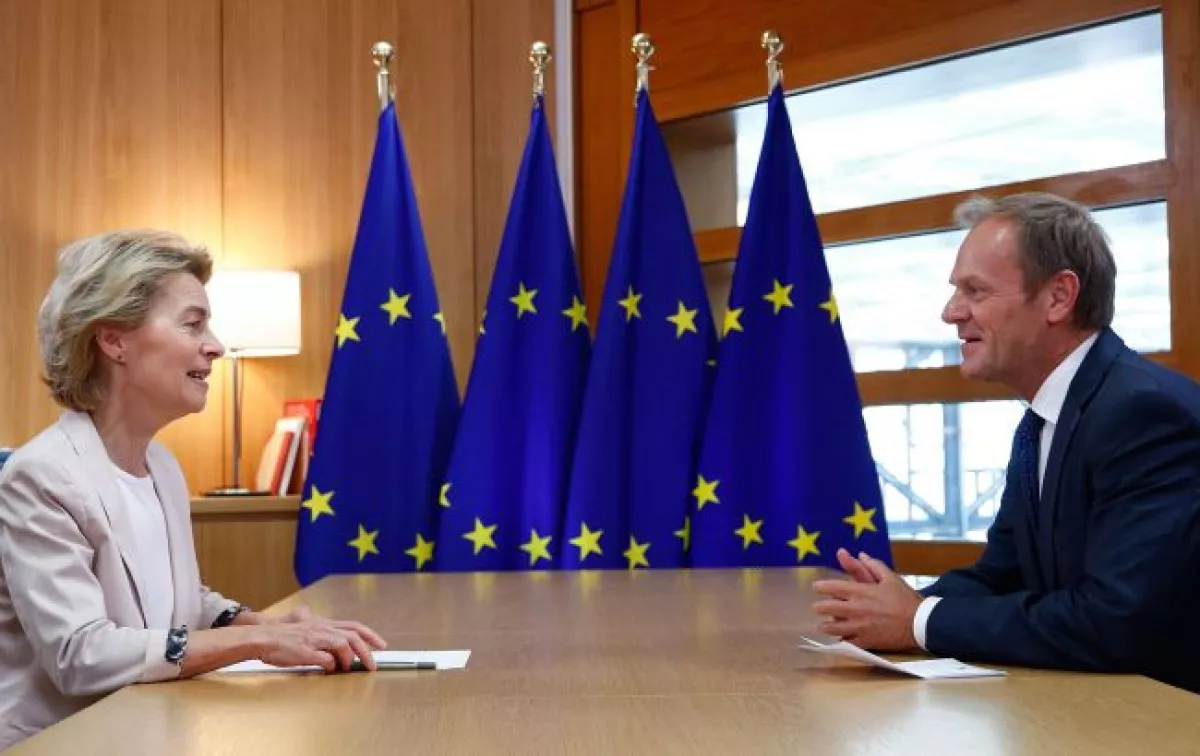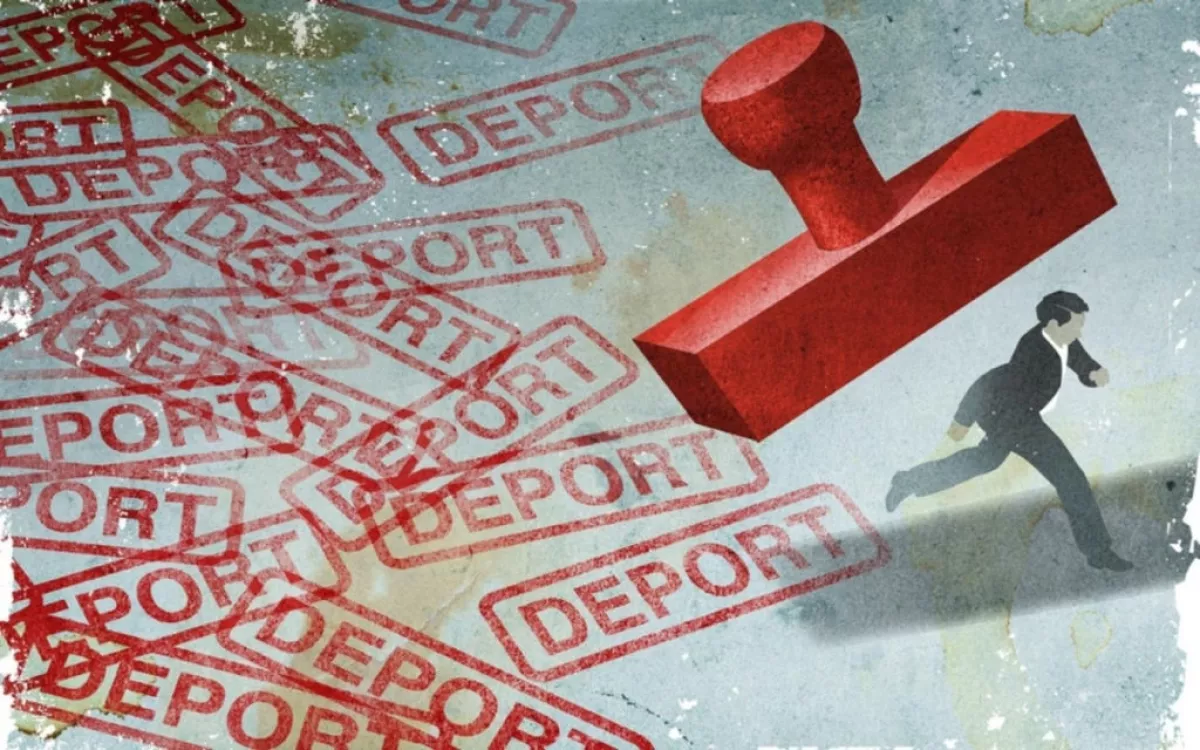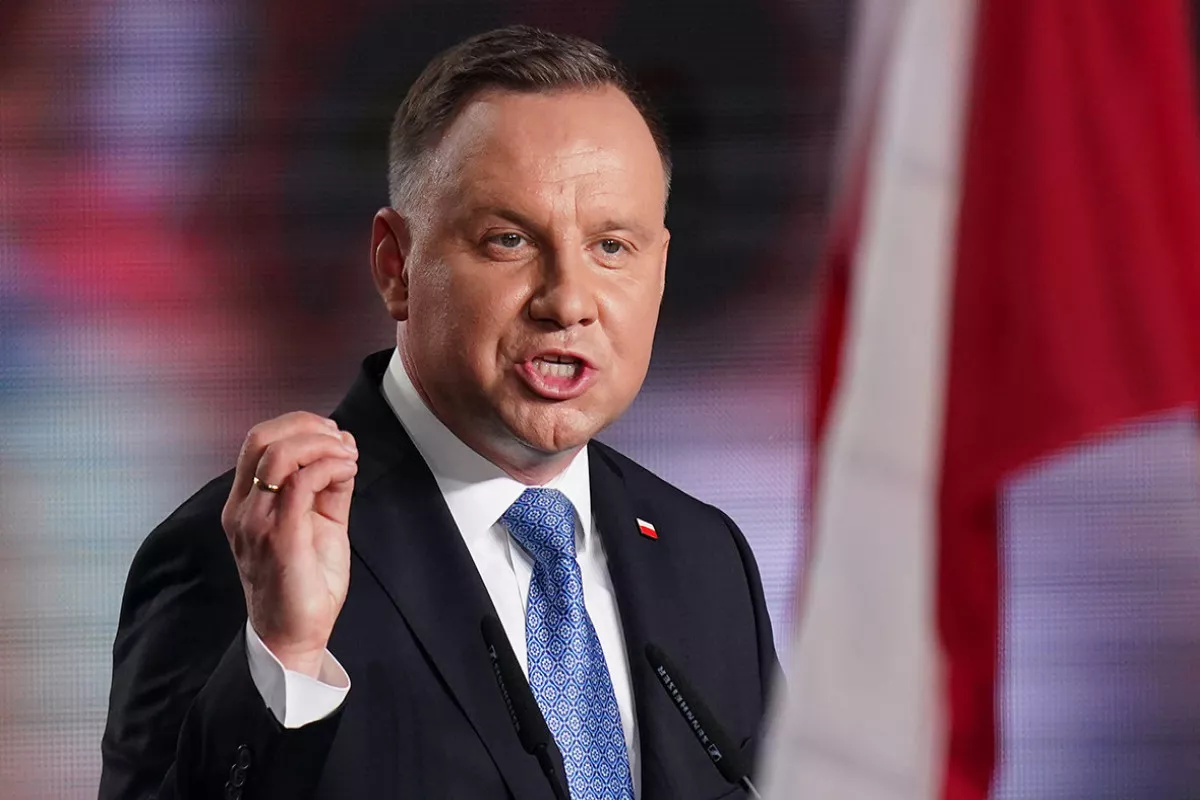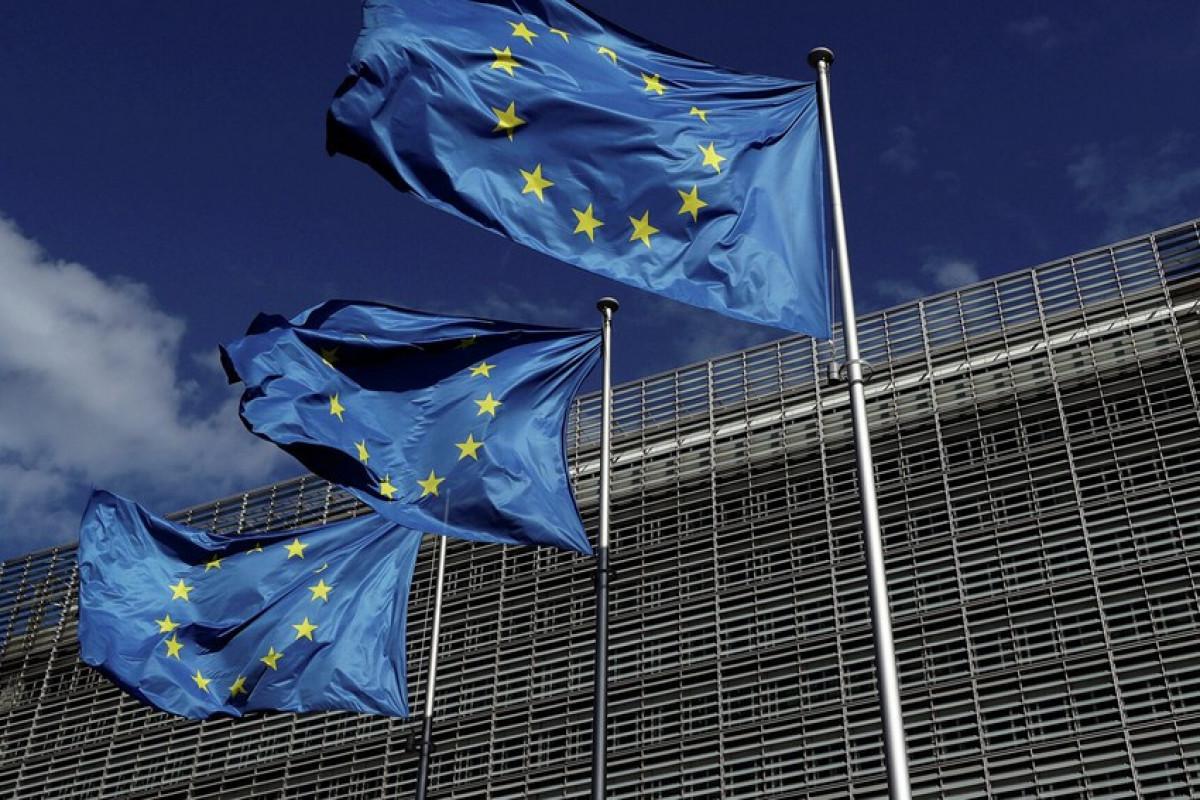Poland gets rid of Georgians Crackdown on organised crime or retribution against Tbilisi?
On 5 March, 17 Georgian nationals were deported from Poland. Polish authorities have stated that this is only the beginning. What should the Georgian diaspora in the Polish-Lithuanian Commonwealth expect?
Crackdown on "Georgian criminals"
On that day, Prime Minister Donald Tusk announced the launch of a large-scale deportation of Georgian citizens who had committed offences in Poland. A major campaign against "Georgian organised crime groups" is planned for the near future. Tusk had already announced the start of deportations in February 2025 at a joint press conference with European Commission President Ursula von der Leyen.
Notably, in March 2017, Poland introduced a visa-free regime for short-term stays of Georgian citizens following a decision by the EU.

"Deportations have begun. We are effectively breaking up Georgian gangs. Not words, but actions," the Polish Prime Minister stated on his X social media account, attaching a video of the operation. The footage shows a convoy of Border Guard vehicles arriving at an airfield. A group of men, their hands bound in handcuffs, is escorted from the vehicles. The handcuffs are removed only moments before boarding a military transport aircraft. The Polish Air Force's CASA C-295M then takes off, carrying the deportees and their security escorts.
"This is the first of several planned operations. More will follow in the coming weeks," said Major Andrzej Jóźwiak, a spokesperson for the Border Guard. The identities of those deported remain undisclosed, but it is known that they are men aged between 24 and 58. Prior to their deportation, they were held in secure immigration detention centres in Kętrzyn, Biała Podlaska, Przemyśl, and Lesznowola.
While the operation is being widely promoted as a crackdown on organised crime, official statements indicate that not all deportees are linked to criminal activities. Some were expelled for overstaying their visas or entering Poland in violation of immigration rules.
Speculation is already circulating online regarding the broader implications of this policy shift. Some observers suggest that Poland's tougher stance on Georgian nationals may be linked to Tbilisi’s increasingly independent foreign policy, which has distanced itself from Western influence.
In recent weeks, Polish media outlets have increasingly published reports portraying Georgian nationals as a significant criminal threat. Sensationalist headlines such as "Georgian Gangs Operating in Poland Are Ruthless and Have No Boundaries" reflect a growing narrative that frames Georgian criminal groups as particularly dangerous.
In one such report, former Central Bureau of Investigation officer Marcin Miksza claims that Georgian criminals are "far worse than Polish ones." According to him, they are highly calculating, disregard surveillance, and exhibit extreme aggression in their criminal activities. Miksza also notes that Caucasian criminal groups are often composed of close-knit relatives, making infiltration and intelligence gathering particularly challenging.
"Caucasian bandits" in the Polish sandbox
Professor Tomasz Safjański, deputy director of the Centre for Transborder Security Studies at WSB Academy and a former senior police official, has provided one of the most detailed assessments of the so-called Georgian crime wave. He argues that beyond their criminal activities, Georgians pose a unique challenge due to their "technical elusiveness"—communicating in Georgian and its dialects, using Georgian servers, and thus complicating efforts by Polish security services to intercept their communications.
As a countermeasure, Safjański advocates for the use of Pegasus spyware, which can be covertly installed on mobile devices for surveillance. "It's better to use Pegasus against the 'Georgian mafia' than against the Polish opposition," he asserts.
Additionally, Safjański warns of the deep-rooted ties between Georgian criminal networks and the Soviet-era thieves-in-law tradition, which he believes makes them even more formidable. "Our current criminals are like children in a sandbox compared to the bandits from the Caucasus," he claims.

At the same time, he emphasises that deportations alone will not solve the problem. It is necessary to go further—by creating specialised units to combat ethnic crime. He even recalls the practice of the Polish People's Republic, when the police had specialised groups dedicated to fighting "Gypsy crime."
"Every Georgian citizen should be viewed not only in terms of their unlawful activities but also as a potential tool in the hands of the Kremlin's intelligence services as part of hybrid warfare," the expert stated on the RMF24 internet radio broadcast. In doing so, he deliberately politicises the issue and suggests involving Poland’s Internal Security Agency (ABW) in the fight against Georgian ethnic groups.
However, there is no factual evidence to support his claims. No specific political objectives, no documented links between Georgian criminal groups and external structures, and no data on the presence of "thieves-in-law" from Georgia in Poland are provided. This raises the question: to what extent does Safjański’s approach align with the EU’s principles of tolerance and international law, given that he is effectively introducing a "presumption of guilt" based on nationality?
Crime by national ranking?
What Do the Numbers Say? Official statistics on ethnic crime in Poland present a more restrained picture, contradicting the image shaped by the media.
In 2018, Ukrainians committed 101 crimes, Georgians—37, and Russians—19. In 2023, the numbers were: 314 for Ukrainians, 155 for Georgians, and 51 for Belarusians.
As of November 2024: Ukrainians—259, Georgians—124, Belarusians—26, Russians—21, Moldovans—10, Azerbaijanis—7, Uzbeks—4, and Armenians—3. Currently, there are 1,261 Ukrainians, 330 Georgians, and 146 Belarusians in Polish prisons.
It is evident that Georgian citizens are not actually leading in overall crime numbers. Nevertheless, media coverage focuses on the high crime rate relative to the size of the diaspora. It is also emphasised that Georgians top the list for deportations—specifically in the "absolute category."
For example, in just January–February 2025, the following numbers of deportations were recorded:
– 260 Georgian citizens,
– 220 Belarusians,
– 150 Moldovans,
– 90 Colombians,
– 80 Ukrainians.
Georgians also led this list in 2024. The most common offences committed by Georgian citizens in Poland include:
– theft—1,111 cases,
– drunk driving—410 cases,
– drug-related crimes—361 cases.
Thus, official statistics do not fully support the narrative of "the most violent gangs."
Who Commits Violent Crimes? The most high-profile violent crimes in Poland recently have not been linked to Georgians.
In December 2024, in Łańcut (Podkarpackie Voivodeship), five masked men armed with knives and hammers broke into a businessman’s home. The victims were tortured, including being scalded with boiling water. After stealing a large sum of money and jewellery, the perpetrators fled.
A similar attack occurred in Sanok in August 2024. These crimes triggered a wave of panic and revived memories of the "criminal 1990s." MEP Tomasz Buczek submitted an inquiry to the ABW regarding the incidents. It is known that the attackers spoke a language from one of Poland’s neighbouring countries.
In December 2024, in Warsaw’s Żoliborz district, a migrant of "non-Caucasian nationality" brutally assaulted a 71-year-old woman in broad daylight. In January 2025, at a construction site in Warsaw, a migrant from a neighbouring country attacked two Poles with a hammer, hospitalising one of them.
At the same time, the involvement of Georgian citizens in violent crimes is mostly linked to internal conflicts.
In February, a dispute between Georgian and Ukrainian citizens in Racibórz resulted in a Ukrainian being stabbed. That same month, a fight between Georgians in Warsaw escalated into a stabbing incident—four people were injured, and one later died in hospital. Three suspects, all Georgian nationals, were arrested.
Former police officer Marcin Miksza predicts further escalation of conflicts between Ukrainian and Georgian groups. Poland’s Main Police Headquarters confirms: “The greatest current concern is the rising crime rate among the Russian-speaking population.”
Deportations, PR, and geopolitics
What is really behind the mass deportations of Georgian citizens from Poland? Is there a connection between this campaign and growing frustration in Brussels over Georgia’s independent political course?
First and foremost, it is essential to consider Poland’s internal political context. Prime Minister Donald Tusk and his ruling liberal-conservative coalition, led by the Civic Platform (PO), are facing sharp criticism from the conservative opposition—the Law and Justice (PiS) party—particularly on migration policy issues.

Additional tension has arisen from Germany’s plan to open a special centre in Brandenburg, near the Polish border, to transfer some refugees to Poland. In response, President Andrzej Duda (a PiS member) has demanded that the prime minister immediately take control of the situation. With upcoming elections, it is crucial for the ruling coalition to demonstrate its ability to respond firmly to migration challenges.
It is precisely in this context that Tusk’s statement following the latest deportation—“Not words, but actions”—should be viewed. It appears to have been directed more at his political opponents than at those being deported.
However, the choice of Georgians as a “symbolic group” for anti-migration rhetoric may not be accidental—it could be driven by geopolitical and ideological priorities. The fact is that Georgia, which is currently demonstrating an independent stance and prioritising national interests, is increasingly facing criticism from its Western partners.
In March 2025, the three Baltic states expanded their entry ban to include a number of Georgian MPs, security officials, and other government representatives. Lithuania alone added 74 Georgian officials to its sanctions list. The independent position of the Georgian Dream government is now automatically equated with “repression” and “human rights violations.”

Nevertheless, the European Union’s plan to introduce bloc-wide sanctions against the Georgian leadership has failed, as Hungary, Slovakia, Luxembourg, and other countries opposed the measure. In December 2024, Polish Foreign Minister Radosław Sikorski spoke about the possibility of imposing personal sanctions on Georgian authorities, but so far, no such decision has been made.
In Brussels, the possibility of revoking Georgia’s visa-free regime is also being discussed. However, Poland’s Foreign Ministry has so far refrained from supporting the idea of “punishing” the entire Georgian society over disagreements with its government.
No matter how tense the situation becomes, sanctions and repressive measures are unlikely to serve as a solid foundation for international relations. Only dialogue, openness, and mutual respect can ensure constructive and neighbourly cooperation between nations and peoples.








